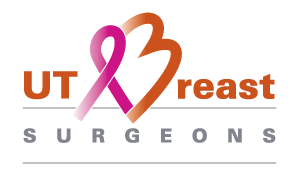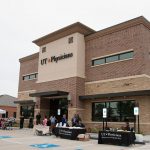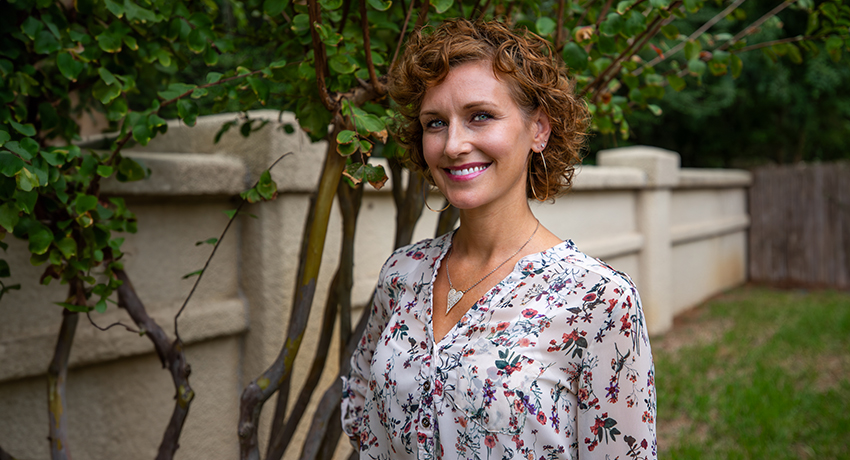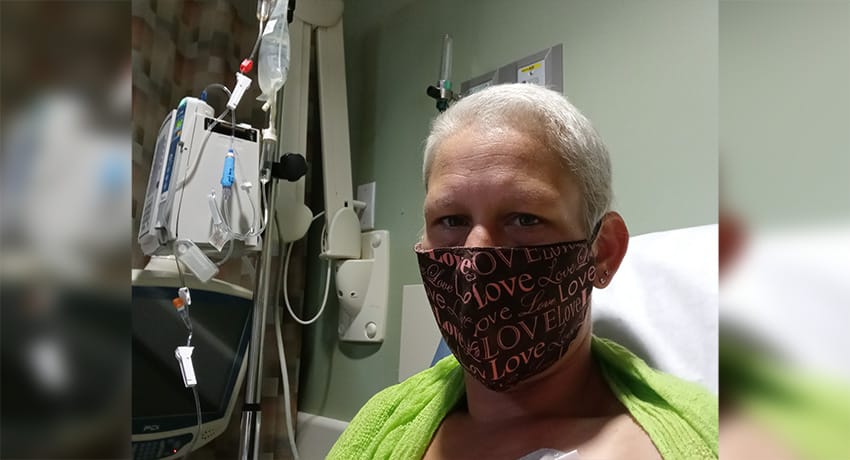What is Breast Cancer?

Breast cancer is a cancer that begins in the breast tissue. Excluding skin cancer, it is the most common cancer found in women. A diagnosis may be difficult to hear, but patients should know that breast cancer survival has been increasing in recent years thanks to improvements in screening, detection, and treatment. Patients are often evaluated in a UT Physicians breast surgeon Houston office because of concerns they have about their breasts. The one question they want answered is simple: “Is this cancer?”
Bring your concerns about breast cancer to UT Physicians breast and endocrine surgeons. Call (713) 892.5500 to schedule a consultation.
Patients with breast complaints are thoroughly evaluated with taking of a detailed history, a physical examination, and radiographic imaging as indicated. Sometimes, if a mass is found, a breast biopsy is needed to evaluate it. Most breast biopsies done for masses return with a non-cancer diagnosis.
Signs or symptoms that may be secondary to a breast cancer include a new mass in the breast, a change in the size or contour of the breast, new nipple inversion, bloody nipple discharge, or skin thickening with redness. Any of these signs should prompt you to visit your doctor who may order additional imaging studies, even if a recent mammogram has been done.
How to Detect Breast Cancer
Biopsy
Breast biopsies are performed by surgeons in Houston using a small needle and image guidance via mammography or ultrasound. As noted above, most breast biopsies return with a non-cancer diagnosis. Often the biopsy is performed by a radiologist using local medication to make the area numb. Once the tissue has been removed, a pathologist then has to look at it to make the diagnosis.
Mammogram
A mammogram is an x-ray of the breast tissue, used to screen for breast cancer and to evaluate the breast in the case of a concerning clinical finding as listed above. Sometimes more than one set of mammograms from our cancer center in Houston is needed to completely evaluate the breast.
Ultrasound
An ultrasound uses sound waves to develop a picture of tissues deeper in the body. It can be used to look in areas where a breast mass is suspected either from a physical examination or a mammogram.
MRI
An MRI uses magnetic imaging to look inside of the breast. This study requires an injection of dye into the veins.
Signs and Symptoms of Breast Cancer
Typically, symptoms of concern include lumps, swelling, size changes in your breasts, skin changes, and soreness in different areas around the breast. You may also notice that your nipple may be inverted, red, swollen, scaly, or exhibiting discharge.
If you are experiencing any of these symptoms, please contact us (713) 892.5500.
Some of the contributing factors of breast cancer include:
- Gender: 190,000 new cases of breast cancer per year
- Age: About 66% of invasive breast cancer cases are in women age 55 and older
- Family History: First-degree relationships with cancer can double your risk
- Genetics: About five to 10% of breast cancers may be caused by abnormal genes from parent to child
- Personal History: Those already diagnosed with cancer are three to four times more likely to find it elsewhere
- Other Benign Breast Changes
- Race/Ethnicity: Anglo women appear to be slightly more likely to develop breast cancer than African American, Hispanic, or Asian women, but African American women seem to be more susceptible to aggressive, advanced stage cancer at a younger age.
- Weight: Being obese or overweight can increase the risk of breast cancer returning, especially for women over the age of 55
- Pregnancy History: Women over the age of 30 who have not had a full-term pregnancy have higher risk
- Other Factors: Menstrual history, using hormone replacement therapy, alcohol use, breast density, lack of exercise, and smoking can all contribute to breast cancer risk.
If you or someone you know is showing signs or symptoms or wants to learn more about some of these contributing factors, please contact UT Breast immediately. Our breast cancer physicians can help you identify, understand, and treat these risks and complications.
How to Screen and Test for Breast Cancer
Responsible screening at regular intervals is the best and most proactive activity a woman can take to prevent breast cancer or to find or detect any tissue abnormalities at the earliest possible stage. Following normal screening tests, if anything looks suspicious, more diagnostic tests from our Houston oncology center will follow.
Outside of self-examination, the primary screening method is a mammogram, which is an X-ray of the breast. This is used as regular screening for women who have no obvious cancerous symptoms. Several randomized clinical trials have showed that mammograms can help reduce the number of deaths from breast cancer among women age 40 to 74.
Screening mammograms usually involve two X-ray pictures, or images, of each breast. The X-ray images make it possible to detect tumors that cannot be felt. Screening mammograms can also find microcalcifications (tiny deposits of calcium) that sometimes indicate the presence of breast cancer. Other detection screenings include magnetic resonance imaging (MRI) and ultrasound.
The National Cancer Institute recommends that women aged 40 and older should have mammograms every one to two years, while women who are considered to be at a higher risk should consult their physician about more aggressive monitoring. Contact our breast cancer treatment center in Houston to schedule your annual screening.
Treatment for Breast Cancer
Should a breast cancer diagnosis occur, our best breast surgeons in Houston will quickly put together a treatment plan specific to you and your pathology report. There are many different treatment options, and our team will carefully explain each of them to you. The most important thing to remember is that your treatment is customized around you: There is never a one-size-fits-all approach, and we will be your guide.
There are many different kinds of treatment available, and their applicability depends on the type of cancer you have, the stage, its resistance, etc. Typically, a person with breast cancer may consider surgery, radiation therapy, chemotherapy, hormonal therapy, or other targeted therapies (such as Herceptin® and Perjeta®). The ideal treatment plan removes or damages cancerous cells without affecting the healthy tissue around it.
Depending on your unique condition, you may be considering a mastectomy (removing the entire breast), lumpectomy (removing only affected tissue), lymph node removal/sampling, breast reconstruction, a prophylactic mastectomy, or cryotherapy.
Our environment is friendly and comforting, and our surgeons are world-class.
Benefits and Risks of Breast Cancer Treatment
Although the need for surgery is never an easy thing to deal with, our staff and surgeons are here to help you in every way possible. UT Physicians breast cancer surgeons are expert trained at minimally invasive techniques, which allow for more accurate, safer surgeries with faster recovery times.
One advantage to surgery is that it is meant to excise cancerous tissue completely and deliver the best chances for a full cure. Another advantage is that expert surgeons are able to treat only affected areas and leave healthy tissue in place and unaltered. After surgery, it may not be necessary to have radiotherapy, which means fewer unwanted side effects. A successful surgery can also result in a faster total recovery time than many other treatments.
Our breast cancer physicians will discuss with you the most appropriate type of surgery for you, depending on the size and position of the cancer. Depending on your unique situation, you may have a choice of treatment. We know these are important decisions, so we make sure to fully discuss your options with you, including the benefits and disadvantages of each.













